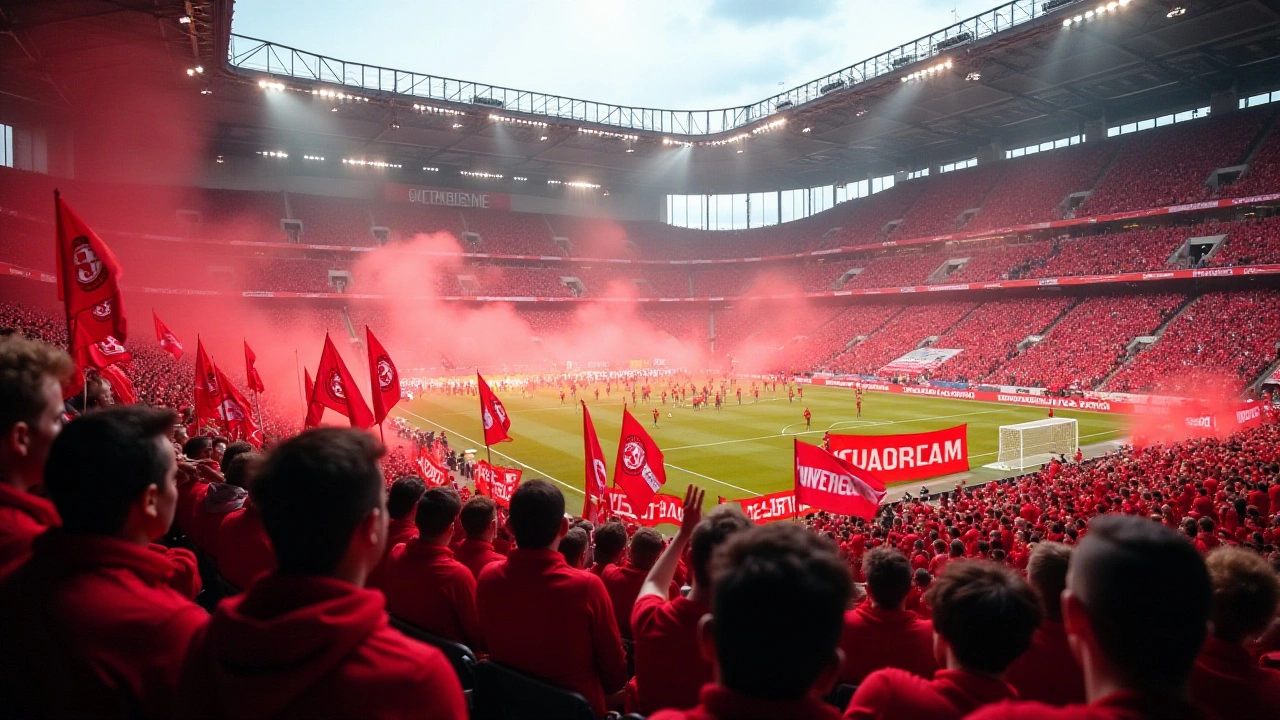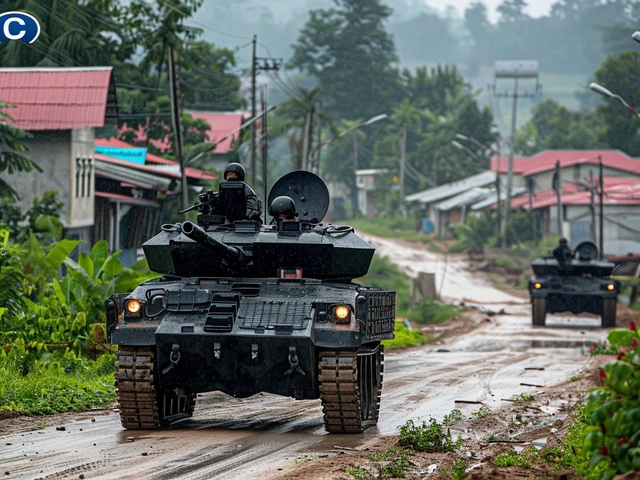Unfolding Tension: The Skirmish and Its Discovery
As the VfB Stuttgart football club prepares to face stern competition on the pitch, its ardent supporters—often a cause of pride and anxiety—found themselves at the center of an unsettling skirmish at the Serbian border. Confirming specifics of this occurrence was a task undertaken carefully by a club spokesman, balancing transparency with the demands of an ongoing investigation. During a thorough check by Serbian authorities, materials energetic enough to light up any stadium—commonly known as pyrotechnics—were unearthed amidst the celebratory paraphernalia of the travelling ultras. This discovery raises multifaceted questions: not only about security lapses and fan behavior, but also about the persistent challenge of balancing passionate support with public safety.
The Broader Problem: Fan Violence in Football
Unfortunately, the incident at the border isn't an isolated case. The scourge of fan violence is far from a new adversary in the world of sports, particularly in football. Instances of similar chaos and clashes have peppered both domestic and international arenas. In a comparable showdown, fans of Bayer Leverkusen and Stuttgart clashed provocatively before their Bundesliga match, setting a harsh precedent that the Serbia incident now serves to illuminate. Such events underscore a loud call to action for clubs, regulatory bodies, and local authorities to conceive and implement effective tactics aimed at mitigating such violent tendencies.
Security Concerns and Measures
Any event involving supporters on a large scale summons a litany of logistical and safety concerns, with each episode challenging authorities to better their preparedness and responsiveness. The Stuttgart incident, particularly with its international dimension, highlights the need for rigorous coordination between countries' law enforcement. It’s a delicate dance, ensuring that the right balance is struck between fan enthusiasm and the public’s safety. Uplifting security measures is not merely about policing; it involves creating informed and engaged fan communities that hold sportsmanship above conflict. Strategies could include educational campaigns, stringent checks on travel convoys, and stronger punitive measures against those inciting or engaging in violence.
A Call to Enhance Fan Experience
While the narrative of such violent fan conduct might disturb the sanctity of football’s reputation, it also offers an opportunity to re-evaluate and enrich the fan experience. Clubs like Stuttgart can pioneer programs that not only warn against the perils of violent behavior but also promote alternative, positive outlets for supporter energy. Solutions may include community events, fan club forums, or collaboration with international fan communities to foster mutual respect and understanding. Solutions could involve clubs working closely with fan organizations to instill a sense of responsibility and collective pride that goes beyond on-field successes, ensuring the tides of support do not turn tumultuous.
Implications for International Competitions
This incident, much like others in recent years, sends ripples through the layers of international sports management. The very essence of cross-border competitions, like the Champions League, relies on spirited, but peaceful fan engagement. The Stuttgart trouble at the Serbia border shines a glaring light on the stark realities that still pervade international sports—the pressing need for synchronized policies and practices that safeguard the joyous spirit of the games. UEFA and international football bodies must now walk a tightrope, ensuring their competitions thrive under the watchful aegis of stringent security and fervent yet peaceful fandom.
The Result: Moving Forward Post-Clash
Not to be overshadowed by the off-field drama, the footballing aspect did see a decisive outcome in Belgrade, with the Serbian champions claiming victory over Stuttgart. While such outcomes are common currency in the footballing world, the narrative surrounding Stuttgart’s journey is marked by a cautionary tale. Their experience in Serbia is an illustrative microcosm of broader issues facing sports: the delicate equilibrium of fan fervor, the quest for peaceful and celebratory exchanges, and the undying spirit of competition that calls for honourable displays both on and off the field. Moving forward, Stuttgart and others must heed these lessons, an impetus toward creating safer and more inclusive sporting environments that allow the beautiful game to be enjoyed by all.






Write a comment